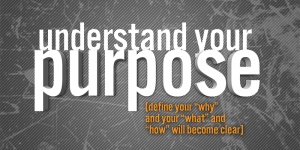Intentional Living Begins Here
So many people wish life was easier, with less challenges and obstacles but without challenges, life becomes stagnant and we stop growing. Challenges help us uncover who we are and it allows us to become better people. 
Let’s examine a very simple 4-step method to overcoming challenges.
First, state the problem clearly. When we are faced with challenges, we tend to avoid the issue and run the other way burying our heads in the sand hoping it goes away. Or we may say – ok, there is an obstacle, instead of heading right to it and plowing through, I am going to look for another path and even though that is not the way I want to go – it looks easier… less headache… but rarely does that work out. When we avoid or go out of our way, we cause more headache in the end. It takes more of our time, it takes more of our energy and we don’t get the end result we are looking for. So take this time to understand what the challenge is. Ask yourself what is the question, what is asked of me, what is the main goal? Write this down on paper.
Second, identify what you have at your disposal – what resources are available to you to work through this challenge? List all of these resources out. These should include things such as tangible assets – money, computer, books, etc. And then what skills you have, what are your strengths to work through this? Don’t forget others – what access do you have to others that can help?
Third, design the strategy to overcome this challenge. Utilize all your assets to create a plan of action. You may find this plan will need to be tweaked as you execute and that is ok. Keep at it.
Lastly, execute the strategy with effort and determination. Do your very best with all you have to overcome your challenge.
If you find that you still cannot overcome a challenge, then re-evaluate. If your strategy just won’t work because it isn’t viable or effective then change it. If your strategy doesn’t work because you didn’t execute it well enough, be persistent and tweak your efforts, giving it more.
Practice this method on small challenges and see how easy it is to overcome. Then try it on the big rocks!






